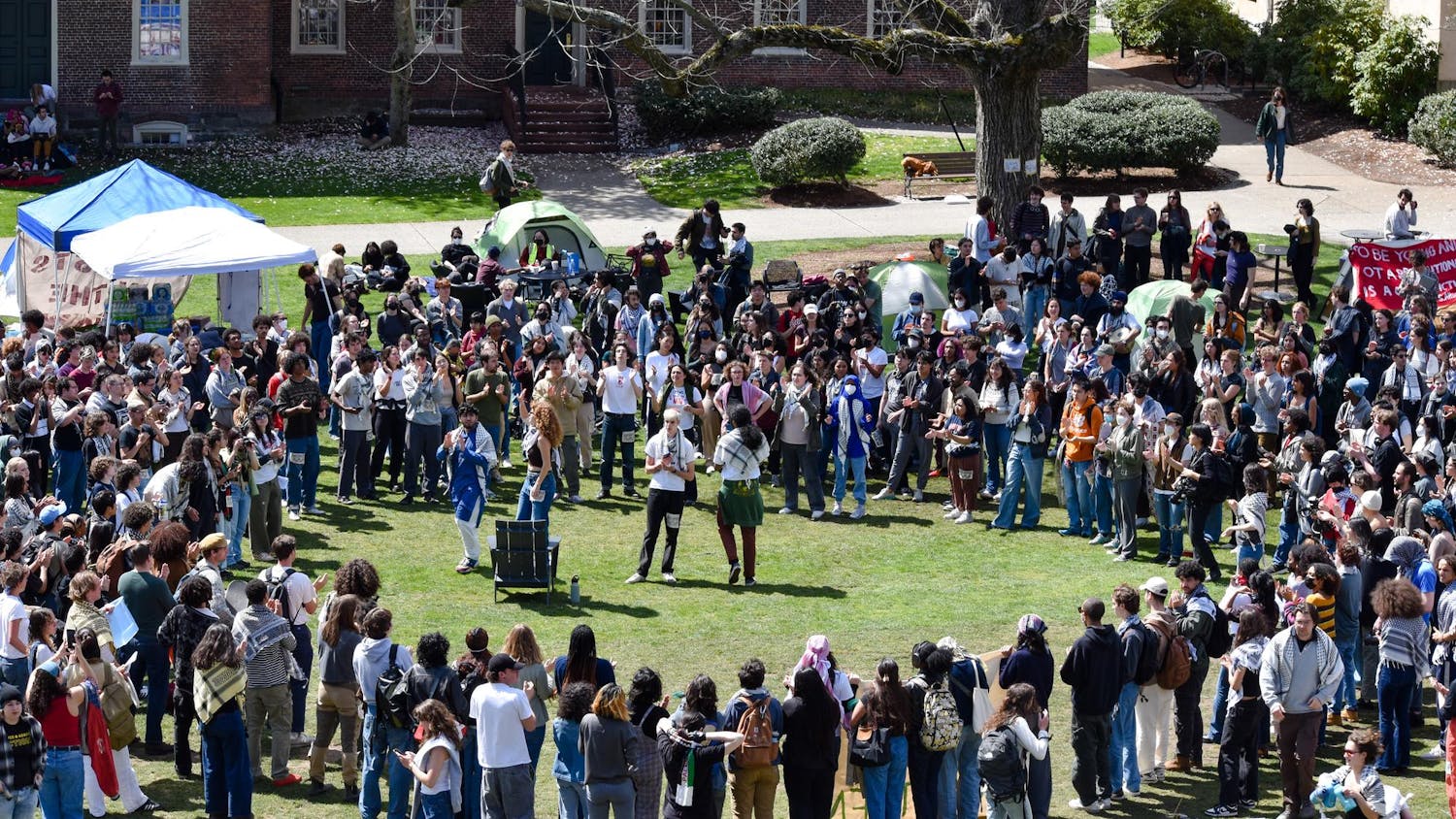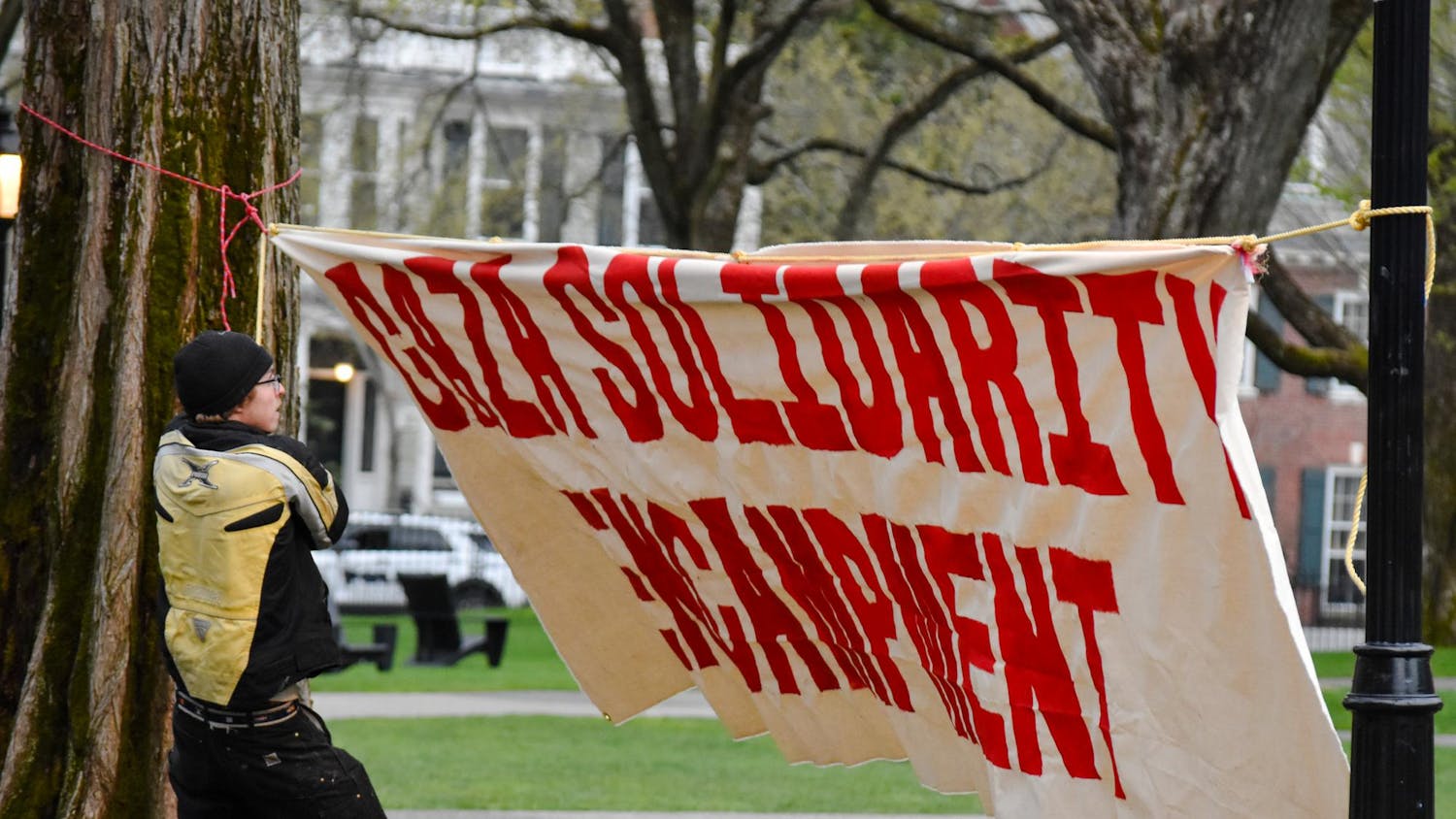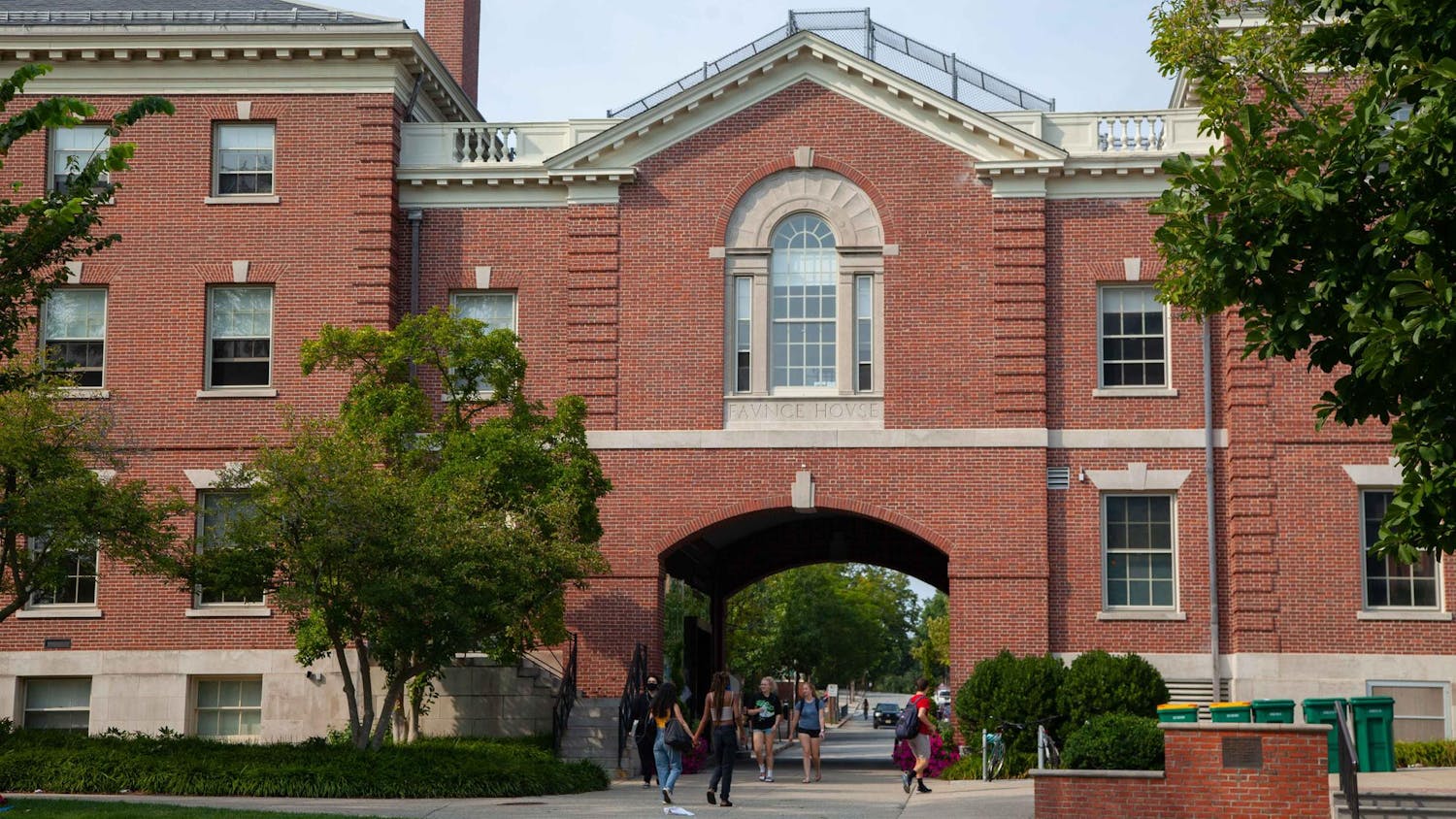Like every year, the first week of classes was filled with bustle and energy as new and returning students shopped through classes and moved into dorms. The only difference was that this year it all happened one week earlier — making life easier for some, but causing conflicts for others.
In previous years, the first day of classes has fallen on the Wednesday after Labor Day. But this year the start day was moved to Sept. 1, the Wednesday before Labor Day, since the Jewish New Year of Rosh Hashanah began the night of the following Wednesday, Sept. 8.
Happy new year
The change was made "in order to avoid hardships for both students and faculty that observe Jewish holidays and would subsequently not be able to participate on the first days of shopping period," said Dean of the College Katherine Bergeron.
Normally, Rosh Hashanah falls on the later weeks of September, therefore not conflicting with the beginning of the school year. But since the date of the holiday is set according to the Jewish calendar, the event occurs at a different time every year.
Having the first day of shopping period coincide with Rosh Hashanah would pose a serious conflict for students and faculty who formally observe the holiday.
"I am someone who observes Rosh Hashanah, which means no class, no computer, no phone," said Leor Shtull-Leber '12, president of the Brown-RISD Hillel and a Herald design staffer. This means for Shtull-Leber, and any other observing student, participating in the first days of shopping period would have been nearly impossible.
"In general, I appreciated (the change) because it made life easier," Shtull-Leber said. "Still, I understand the frustrations and complications that came with it. While it was beneficial for the observing Jews, they are a small part of the whole community."
When the Office of the Registrar recognized the conflict, University administrators were made aware of the situation, Bergeron said. University Hall then discussed alternatives and presented the schedule change to the faculty for a vote.
Bergeron said the change was only a response to the specific circumstances of this year, and there is "no plan to change the calendar permanently."
But some faculty have wanted to "reexamine the fall schedule to make it more in line with spring," said University Registrar Robert Fitzgerald, noting that the fall semester is often shorter than the spring semester because of Labor Day and Rosh Hashanah. A proposal to make the earlier start permanent never went to a faculty vote, he said.
To make this change permanent, Fitzgerald added, "we would need more feedback from students, teachers, parents and alums."
According to Fitzgerald, the calendars for the 2011–12 and 2012–13 school years will return to normal. But, he added, the administration will run into the same problem again in the fall of 2013, when Rosh Hashanah starts the night of Wednesday, Sept. 5.
"Maybe another year that poses similar challenges, we may be asked to vote again," Bergeron said.
Poli sci problems
Not everyone welcomed the change. One big conflict that arose from starting earlier was that professors from the Department of Political Science were attending an important conference during Labor Day weekend.
"The early start date has been a nightmare for political science," wrote James Morone, professor of political science and chair of the department, in an e-mail to The Herald. According to Morone, political science professors normally attend the annual convention of the American Political Science Association starting the Thursday before Labor Day, when Brown classes usually are not in session.
"Last year, we had 1,246 students taking courses from us in the fall," Morone wrote, so it's been "an incredible scramble for us to juggle everything — shopping period, advising and our professional obligations."
According to Associate Professor of Political Science and Public Policy Ross Cheit, when professors from the Department of Political Science heard of the change and realized the conflict, the department met and concluded that every professor would individually decide how to best handle the conflict.
Some professors, Cheit said, decided to cancel the first class. This caused confusion among students — some of whom thought their class was meeting when it was not and others who did not attend class because they thought all political science classes were cancelled.
Laura Stumhofer '13 ran into this very problem. While she enjoyed having the long weekend off, she said, she was annoyed that her political science classes were affected.
"There were some poli sci classes that didn't even start until a week later," Stumhofer said.
Though faculty have discussed making the change permanent, Cheit said that making the change permanent would cause a large problem for the Department of Political Science.
"If this was a one-time thing, it wouldn't be that bad," Cheit said. "But if it's permanent, that's a whole different story."
Monday blues
The change also caused problems for students and professors with Monday-only seminars. Because shopping period starts on a Wednesday, Monday seminars normally are not held that week. However, since the first Monday of shopping period fell on Labor Day and classes were cancelled, Monday seminars did not meet until Sept. 13, making shopping for these classes difficult for students.
"I liked the fact that we had a long weekend to ease into school," said Kara Kaufman '12. "But at the same time it was very frustrating because I had a Monday seminar that didn't start until two weeks after school started."
Kaufman said that in order to make up for the missed classed time, her professor assigned reading before the first class met.
Students who wanted to shop a class at the time, however, were still restricted because they could not shop the class until near the end of shopping period.
The conflict with Monday seminars "has been an unfortunate side effect," Bergeron said. To make up for the conflict, the Office of the Dean of the College "tried to accommodate registration" for Monday seminars by extending by a week the deadline of registration without a fee for those classes, she said.
Nice long weekend?
Other professors expressed discontent with the change, but many students who didn't have any conflicts with classes said they appreciated it, especially the long weekend it provided.
Lowry Marshall, professor of theatre, speech and dance, said that while the change did not affect her once she was back at Brown, it did affect her summer. Marshall helped run a summer theatre program at Brown that ended very closely to the early start of the school year.
"The change throws the whole semester off," Marshall said. "The distance between summer and Brown was miniscule."
Marshall added that students who participated in the same summer program were also affected negatively by the early start.
Other professors, like Douglas Brown, director of writing support programs and adjunct lecturer in English, had mixed feelings about the change.
"I liked getting Labor Day off, but I didn't like starting early," Brown said. "Thankfully, it didn't affect my classes."
Myles Coleman '13 not only appreciated the extra day off, but thought that having a free day helped him reconsider his classes.
"The long weekend is nice," Coleman said. "You have time to think about classes during the day off."
As a first-year, Atiuh Cervantes '14 liked having a small break while shopping period was still getting started.
"Because of the day off, it's not so intense right away," Cervantes said. "I ended up changing one of my classes over the weekend."
Taran Raghuram '14 was pleasantly surprised by the break.
"We already have a three-day weeke
nd? That's awesome," he said.




